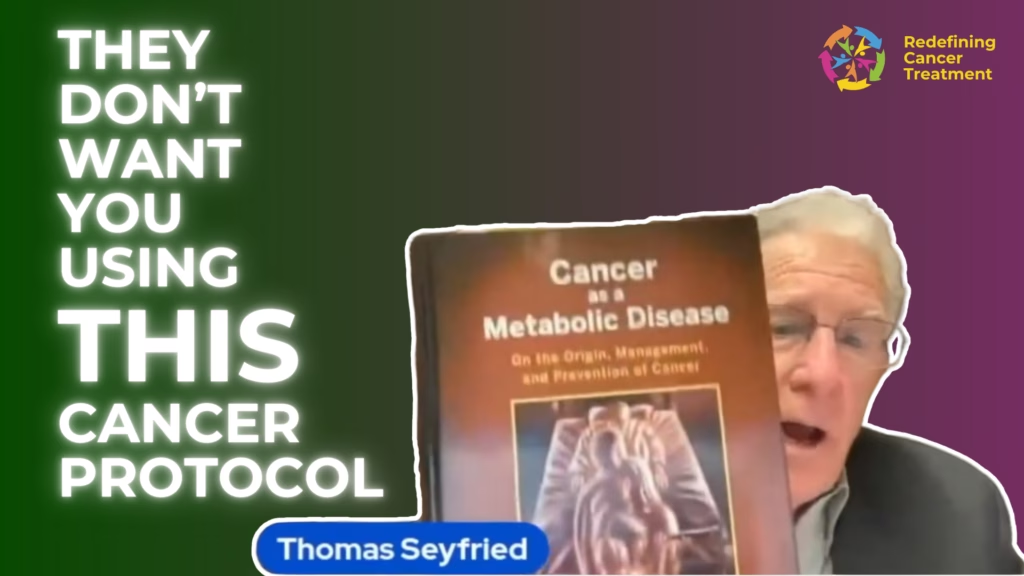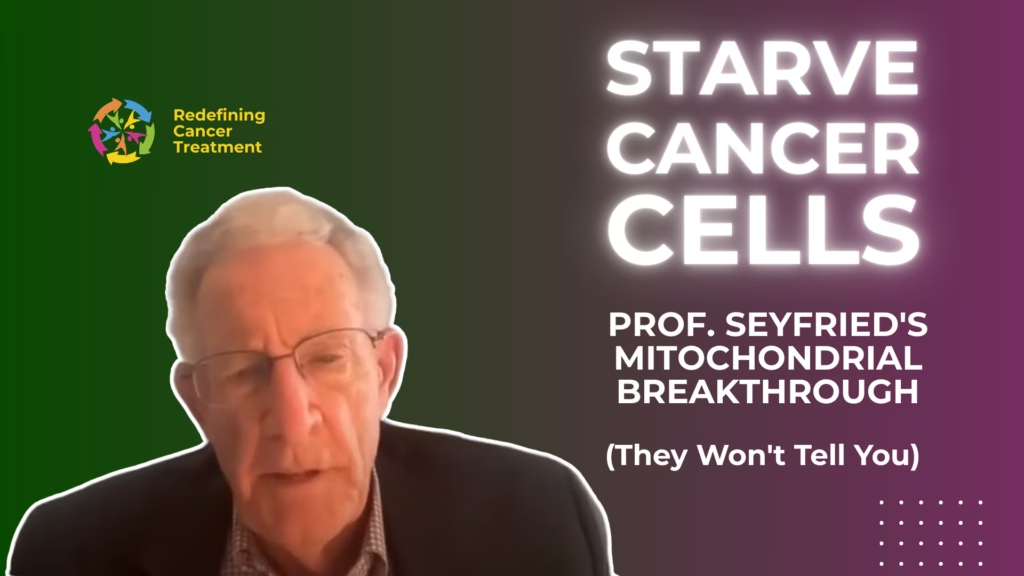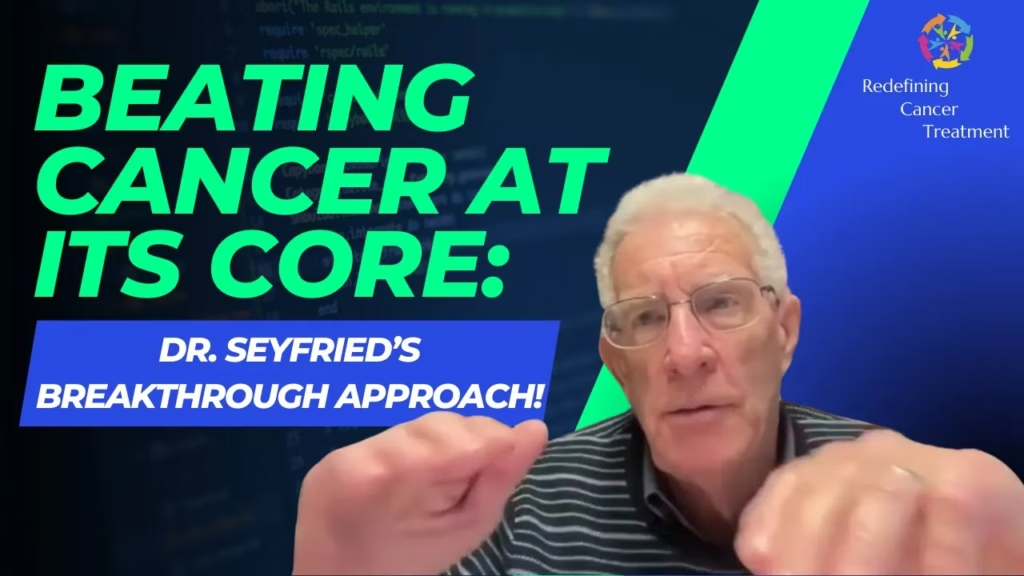
Thomas Seyfried Warns Against Unauthorised Use of His Work in Cancer-Keto Promotions
Dr. Thomas Seyfried Issues Warning: “Stick to My Published Work”⚠️ The cancer researcher clarifies he has no ties to “keto for cancer”
Join Prof. Thomas Seyfried as he delves into the groundbreaking concept of cancer as a mitochondrial metabolic disease. In this video, he explains how cancer cells rely on fermentation metabolism, the role of glucose and glutamine as fuel sources, and the potential of non-toxic therapies like ketogenic diets, fasting, and the ‘press-pulse’ strategy. Discover a revolutionary approach to cancer prevention and treatment that challenges conventional genetic theories and offers new hope for patients.
Professor Thomas Seyfried
Cancer has long been considered a genetic disease, but groundbreaking research by Professor Thomas Seyfried suggests a paradigm shift in our understanding and treatment of this devastating illness. In this blog post, we’ll explore Prof. Seyfried’s revolutionary ideas on cancer as a metabolic disease and the potential for non-toxic therapies.
Prof. Seyfried argues that cancer is fundamentally a mitochondrial metabolic disease, not a genetic one. This perspective challenges the long-held belief in the medical community that cancer is primarily caused by genetic mutations. According to Seyfried, the genetic mutations observed in cancer cells are actually a consequence of damaged cellular respiration, not the root cause.
Cancer cells rely on fermentation metabolism, which is inefficient and requires an abundance of fuel, primarily glucose and glutamine. This metabolic profile is consistent across various types of cancer, from brain to breast to colon cancer. Understanding this common thread opens up new possibilities for treatment.
The key to fighting cancer, according to Prof. Seyfried, lies in targeting its fuel sources. By restricting glucose and glutamine, we can effectively starve cancer cells while supporting normal cells. This approach is in stark contrast to conventional treatments like chemotherapy and radiation, which can damage healthy cells along with cancerous ones.
Prof. Seyfried and his colleagues have developed the “press-pulse” concept, a strategy that combines:
Dietary interventions (ketogenic diet, fasting)
Hyperbaric oxygen therapy
Hyperthermia
Insulin potentiation
Glutamine-targeting drugs
This cocktail approach aims to eliminate cancer’s fuel sources while enhancing the health of normal cells.
Ketones play a crucial role in this metabolic approach to cancer treatment. Unlike cancer cells, healthy cells can efficiently use ketones for energy. By inducing a state of therapeutic ketosis through fasting or ketogenic diets, we can potentially:
Starve cancer cells of their preferred fuels
Provide an alternative energy source for healthy cells
Reduce inflammation and oxidative stress
Prof. Seyfried emphasises the importance of therapeutic fasting in cancer prevention and treatment. He introduced the Glucose Ketone Index (GKI), a tool that helps individuals monitor their metabolic state. A lower GKI indicates a more favourable metabolic environment for fighting cancer.
Despite the promising evidence supporting this metabolic approach to cancer, significant obstacles remain:
Resistance from the medical establishment
Lack of large-scale clinical trials
The current structure of cancer care and research funding
Prof. Seyfried believes that change will likely come from grassroots efforts and increased public awareness rather than from top medical institutions.
Prof. Seyfried’s work offers a fresh perspective on cancer as a metabolic disease and presents non-toxic, potentially more effective treatment strategies. As research in this area continues to grow, it may revolutionise our approach to cancer prevention, treatment, and management. While more studies are needed, this metabolic approach provides hope for a future where cancer can be managed more effectively and with fewer side effects.

Dr. Thomas Seyfried Issues Warning: “Stick to My Published Work”⚠️ The cancer researcher clarifies he has no ties to “keto for cancer”

Professor Thomas Seyfried’s groundbreaking metabolic therapy framework reveals how targeting cancer’s energy vulnerabilities—through ketogenic diets and repurposed drugs like Fenbendazole—offers

In this paradigm-shifting analysis of cancer biology, Professor Thomas Seyfried (Boston College) talks about starving cancer cells and dismantles the

The video explores how metabolic therapy can revolutionise cancer treatment by targeting cancer cells’ reliance on glucose and glutamine for energy. It